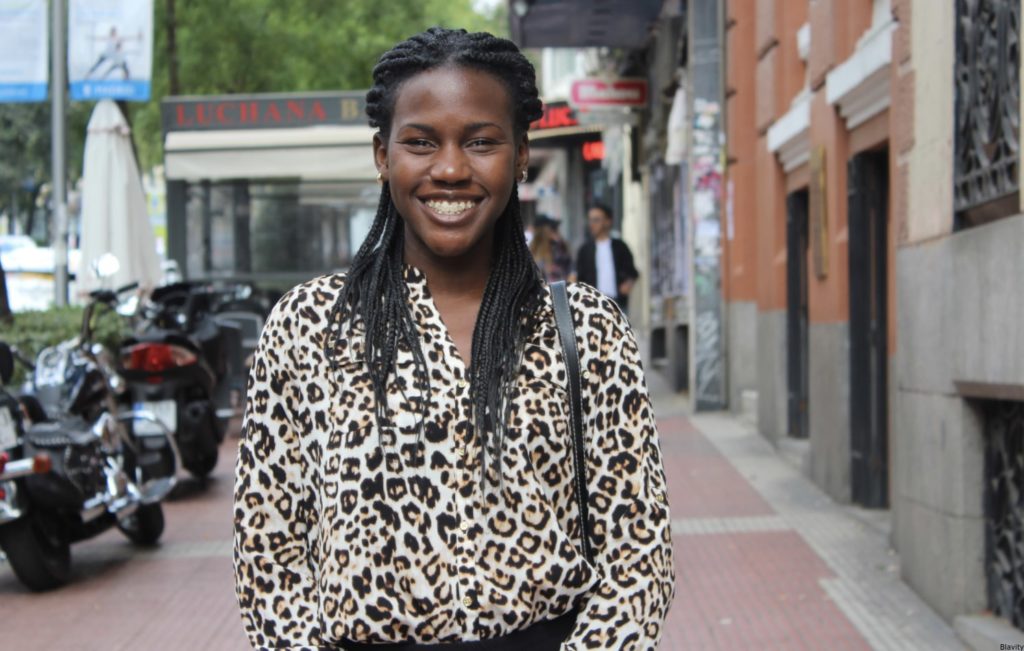
By Littane Bien-Aime
Growing up, Christmas was my least favorite time of the year. It meant another year of pretending that I got presents when there wasn’t even a tree or any gifts in my family’s public housing apartment. I would go back to school with nothing new on, no new gadgets, and no new dolls to show off because my parents, who were from Haiti, didn’t have Christmas gifts on their agenda. Gifts were the last things on their minds. If we had a roof over our heads, food in our bellies and a bed to sleep in, we were blessed beyond measure and anything more was a luxury.
My dad worked 12 hours a night (3 pm to 3 am) 6 days a week with Sundays off as a cab driver in Boston. My mother worked as a nursing aide in nursing homes. At one point she worked two full-time jobs in addition to a part-time per diem job at three different nursing homes in two different cities. Many weeks she logged over 100 hours including overtime. She would work a double for 16 hours from 7 am to 11 pm then head to her part-time job, arrive 30 minutes late and work another 8 hours before coming home to rest for a few hours before her next shift. She still made time to cook for several days in advance, do our laundry, and make sure that we were dressed and at school on time.
For anyone familiar with being a cabbie, it’s a lonely job with unpredictable earnings. It was fraught with danger since cabbies always carried cash on them. My dad was robbed at gunpoint on a couple of occasions and had both his jewelry and cash stolen. Anyone with a relative who works in a nursing home knows how grueling and backbreaking the work can be. My siblings and I used to wait at my mom’s job from 6 to 11 pm after our afterschool program ended because we were too young to be home alone. We would see her in action shuffling between her elderly patients and us, her three young kids sitting in the patient TV room. To this day I still remember the smell of that nursing home. My affinity and softness for elderly people comes from the many hours I spent around them as a child. Though we dreaded going there, some of the elderly residents really enjoyed having young children around.
The only additional schooling and learning my mom had time for was her certified nursing assistant (CNA) program in the early 90s and weekly English courses at a community center in Cambridge. Because my mom had nowhere to leave us, we’d attend these English classes with her from 6 to 9 pm once a week. We would do our best to sit still in the hallway or in the back of the class, a really hard task for three kids between the ages of 6 and 10. Because of my mom’s work schedule, she rarely had time to do her homework and would ask my sister to help her. I’m convinced these homework assignments, which focused on basic grammar and vocabulary, contributed to my sister being a genius. By the 6th grade, my sister was reading at an 11th-grade reading level. My dad in the meantime spent most of his 12-hour shifts alone in his cab at taxi stands, at Logan Airport and other locations in Boston looking for fares. He occupied his time by teaching himself Spanish until he was fluent (he was already fluent in English), memorizing every world capital, U.S. state capital and other random facts that he would pass on to us. By the fourth grade, I could recite every U.S. state capital because of him.
In the 12th grade, I was one of 1,700 Gates Millennium Scholarship finalists chosen out of nearly 100,000 applicants. I decided to apply two days before the deadline so this was amazing news. However, a few weeks later, a small envelope arrived from Seattle notifying me that I wasn’t chosen. My mom and I sat in our small living room in Newtowne Court and she watched as I opened it, read it and broke down crying. She didn’t have to ask what it said and immediately started crying with me as she tried to console me. My top schools were Boston College and Spelman College but on my dad’s cab fares and my mom’s jobs (even with overtime) neither seemed possible. I remember my mom telling me in Creole between sobs (hers and mine), “Littane, you can still go. I can help you. We’ll make it happen. We’ll find a way to pay for it.” This was a woman from rural Haiti who worked for $8 an hour keeping elderly people clean, fed and medicated. She had no more than a 5th-grade education herself. As a child, she aspired to become a secretary, high aspirations for a girl from rural Haiti growing up in the 1950s. Today she is one of a few women among her peers who can do more than sign her name. In the end, I got a full tuition scholarship from Spelman College, and through other scholarships, grants, loans, and my mother’s $8 hourly wages from her nursing home jobs, I was able to attend and graduate from Spelman.
This is the model of hard work, humility, integrity and sheer grit that my Haitian parents set for my siblings and me in their day-to-day lives. Failure was never an option or even a remote possibility because of my Haitian parents. Their efforts and sacrifices gave this little Black, first-generation American girl from the housing projects of east Cambridge endless opportunities. Though they couldn’t always guide me or advocate for me the way other non-immigrant parents did, through their selflessness and sheer determination my Haitian parents enabled me to graduate near the top of my high school class, attend Spelman College on a dean’s scholarship, intern and work on Wall Street, attend the Harvard Kennedy School on a full ride, serve as a U.S. diplomat in Ethiopia, Brazil, Cape Verde and Haiti, and travel to over 30 countries.
Though my parents never once complained (they were just grateful to have jobs) I could see the fatigue in their faces and hear it in their voices when they’d get home at 11:30 pm, 3:30 am or 7:30 am from 12, 16 or 24 straight hours of work. In my mom, I could see it in the permanent bags that developed under her eyes after sleeping only 4 to 5 hours a night for years. For me, and many other Haitian-Americans this upbringing was the norm. These 72-100+ hour workweeks, though unhealthy, were very common in our community. Running from one job to the next, keeping three kids fed and making ends meet with three different paychecks was normal. The example of my parents isn’t extraordinary and their story isn’t unique.
As a result of their sacrifices, today the children of these Haitian immigrants are doctors, lawyers, professors, diplomats, investment bankers, business owners, teachers, social workers, guidance counselors, athletes, psychologists, development workers, nurses, non-profit leaders, Ivy League graduates, Fulbright Scholars, Rhodes Scholars and much more.
Like many other immigrant groups, Haitians and Haitian-Americans contribute greatly to the fabric of American society that is inherently immigrant. Like the Italian, British, and Irish immigrants who came before them and the Salvadoran, Guatemalan, and Nigerian immigrants who came with or after them, Haitian immigrants have made a positive impact in this country through their day to day work, the examples they’ve set, and their children who are the embodiment of their American Dreams. To ignore Haitians’ contributions to this country, undermine their impact on American society, and imply that they or any other groups of people don’t belong in the U.S., a territory originally taken from indigenous people and built by and on the backs of slaves and immigrants is tragic, contradictory and simply un-American.
Published on Blavity



















